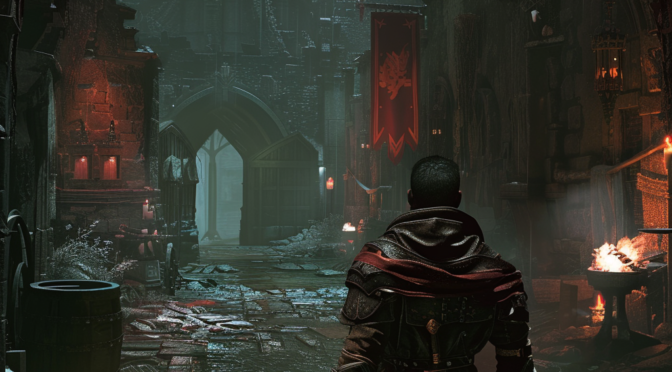Every element in the game is first described by its narrative before any abilities or die codes are ever assigned. The narrative description either directly or indirectly references abilities and hooks. The narrative description , or portions of the description, are summarized in a short phrase referred to as the concept.
